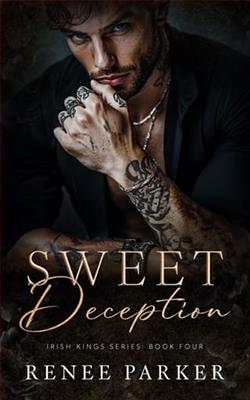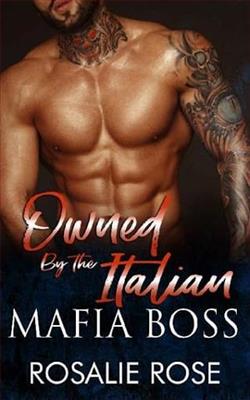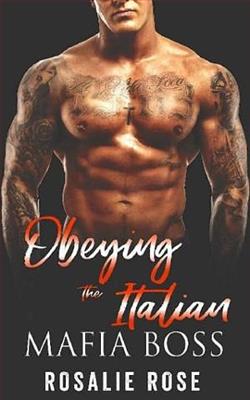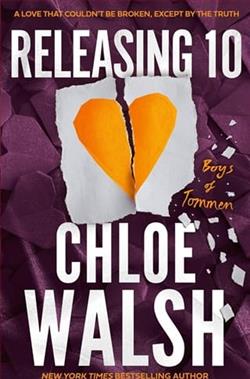Page 59 of These Summer Storms
He ignored the point. “What was the answer that should have stumped you?”
“Judith Slaying Holofernes,” she said, taking comfort in the fact that he didn’t respond, likely because he didn’t understand the reference to the painting. Griffin had understood it, though, and where other men might have shied away from a woman with a passion for that particular painting, he’d been impressed (granted, he hadn’t known her history with the vibe).
One month later, Griffin moved into her tiny one-bedroom and everyone loved him—even Gabi, who notoriously hated everyone Alice dated. Griffin was a good time, a good hang, and he was good to Alice. Who cared that he didn’t have a steady job? Who cared that he didn’t take anything seriously? They were in their twenties and Griffin was great entertainment.
That, and the most important bit—he was Alice’s choice (for better or worse).
“Okay,” Jack said, breaking into her thoughts. “So what happened?”
“I brought Griffin to the Fourth of July.”
His brows rose. “Here?”
“Yes.”
“With your father.”
“I take it from your obvious shock that you are familiar with Storm Independence Day.”
He nodded. “I haven’t had the pleasure of attending, but yes.”
July Fourth was a family affair for the Storms—not because anyone had a particular affinity for red, white, and blue, but because it was a glorious time of year on the island, which made it the perfect time to descend for a long weekend of croquet and bocce and sailing and oysters and lobster boils and cocktails and rounds and rounds of cards that made them all feel like they were a normal family, until Franklin got bored and the Storm Olympics began—with the patriarch of the family assigning ever more impossible tasks to his children…and whomever they brought for trial in this particular fire.
It was not for the faint of heart, and usually marked the final test of a newcomer to the family. Partners were only brought to July Fourth once they were a sure thing. Sila hadn’t been invited until she married Sam (by then, she’d been pregnant with Saoirse, so there was no turning back). Emily broke the rules and brought a boyfriend once when she was in high school (ever the youngest child) and everyone freaked out—including the poor kid, who’d gone wide-eyed at Franklin’s insistence that they all go cliff diving and called his parents to pick him up in Wickford for a well-timed “family emergency.”
Emily liked to joke that she’d only dated women after that, becausemen weren’t strong enough for the Storm Independence Day shenanigans (Claudia, for the record, had aced her first time on the island—leaped from the Moonstone Cliff without hesitation, and received Franklin’s respect as a trophy).
Not so Griffin—he wasn’t strong enough for the Storm games; Alice had known it at the time. But Alice hadn’t expected him to run the normal gauntlet. Charming, funny, never met a stranger—a lot like Franklin, in that way. She’d expected Griffin to just golden retriever his way through the holiday, too oblivious to be afraid.
“My father hated him.”
“I assume that was the point,” Jack said, as though it were obvious.
And it had been, she understood now, with the benefit of time and a lot of therapy. But then, she hadn’t been willing to admit that she’d never really expected Griffin to be accepted by her family. “It wasn’t about him. Not really.”
“Not for either of you, I would think.” When she turned a sharp look on him, he said, “It was about you getting your father to speak to you again, wasn’t it?”
It was possible that she hated this man and the way he saw everything clearly. The way he made her ask questions she was deliberately avoiding. Had she realized what the fallout would be, would she have done something different? Impossible to know. Impossible not to torture herself with the what-ifs now.
“And my father? What was it about for him?”
“Anger,” he said. “You were the most valuable thing he had, and he’d lost you.”
Protégé or not, Jack clearly did not understand Franklin’s feelings about her. She forced a laugh. “That’s funny.”
“It’s the truth.”
Silence fell and she filled it by looking to the south, where the mouth of the Bay opened into the Atlantic. She tilted her head toward it. “We should head back. Around Beavertail. Up past Castle Hill.”
Jack didn’t respond, shifting the boat into a turn. She made for the boom, checking the mainstays, adjusting as he made the turn. She looked to the Castle Hill Lighthouse, high on the ragged shoreline thatrose above them, watching over them as it had done for countless other ships in the century it had been there. She’d painted that lighthouse for her father once (Davy’s gray, terre verte); she’d never seen the painting again.
“We hadn’t even been on the island for an hour before Dad summoned me to sail.” She lifted her chin in the direction of the cockpit. “He barely looked at me, he was so irritated that I’d come. That I’d brought Griffin.”
You know better than to come with someone like him.She could still hear him; could still feel the satisfaction that she’d finally provoked a rise out of Franklin.He’s a joke. Get rid of him.
Or what?she’d asked, unwilling to back down, grateful for the fight. For the attention, for which she was starved, even then, even as an actual adult (was anyone an actual adult under the heat of their parent’s disdain?).Are you finally going to kick me out?
No one would blame me,he said.For what I’ve tolerated.















